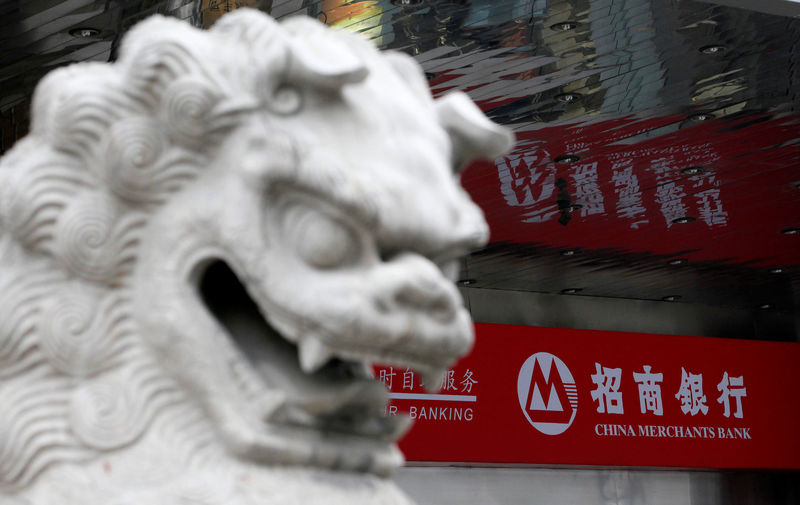By Elzio Barreto
HONG KONG (Reuters) - China's wealth management industry is preparing for a boom in automated investment advice and trading programs, or "robo-advisors", as brokerages, banks and insurers look for a cheaper way to increase revenue from retail clients.
Robo advice services barely existed in China before 2015, but they are expected to manage $27.1 billion of assets at the end of 2017, though that remains small relative to the $182 billion figure for the United States, where services launched several years earlier, according to market research firm Statista.
But the market in China is forecast to more than double every year from 2017 to 2021, compared with U.S. growth of 29 percent a year, which will rapidly narrow the gap, Statista figures show.
The number of Chinese investors using robo services is forecast to soar to 79.4 million over that period from fewer than 2 million last year.
"Everyone talks about the billionaires, but actually we're talking about hundreds of millions of customers in that income band who are basically starting to have investable assets that they want to reposition and redeploy," said Matthew Phillips, financial services leader for PwC China and Hong Kong.
"The only way to service those customers is to automate those processes."
Competition from large financial technology (Fintech) companies, including Alibaba (NYSE:BABA) Group affiliate Ant Financial, Ping An-backed Lufax, and startups such as WaCai is pushing traditional financial companies to embrace the trend.
Some traditional players without the technical expertise to develop their own robo advisors are turning to technology firms such as Pintec Group's Xuanji and MiCai.
Others, like China Merchants Bank (CMB), the country's largest non-state-backed lender, have managed to create their own.
After a months-long nationwide advertising campaign, CMB launched in December its "Machine Gene Investment", or Mojie robo advisory service, which pre-selects a range of assets and trades them automatically, cutting the costs of investment advice for users of its internet banking app.
The bank said users had invested an average 36,900 yuan ($5,360) each so far in the new service, and a person familiar with the bank's business said the service had racked up 3 billion yuan in assets under management in just a couple of months.
MUST HAVE
After months in development, Ant Financial, the world's largest fintech firm, will be launching automated advice to its millions of clients this year, people familiar with the plans told Reuters. The company itself said it wouldn't be offering them "in the short-term".
The sources also said Industrial and Commercial Bank of China (ICBC) is about to introduce a similar tool.
ICBC, the world's largest bank by assets, declined to comment.
Moves by the two behemoths could tempt others off the fence about robo services.
"When you have a main-street bank that did a huge marketing campaign in that particular field ... that solution becomes a must-have for the industry, and the bigger state-owned banks follow them," said Gregory Van den Bergh, chief executive of MiCai, China's oldest robo advisor. "It's had a very good effect on the industry."
Xuanji signed early in 2017 to have its technology run Minsheng Securities' robo advisor and expects to soon close other deals with an insurer and a bank in China, CEO Zheng Yudong said. MiCai is getting many inquiries from banks in mainland China, though the company can't disclose the names of clients, Van den Bergh added.
An EY survey of wealth management clients and industry executives showed Chinese respondents, who are already used to handling most of their finances on mobile phones, were the most likely in Asia Pacific to open robo advisory accounts.
As many as 76 percent said they would consider it, compared with just 25 percent in Australia.
Given low-interest rates in China and expensive real estate, Chinese investors are seeking alternative ways to generate returns, while avoiding the volatility that followed a major slump in Shanghai and Shenzhen stock markets in 2015.
Many hope that a robo-tailored portfolio can deliver.
"Robo advisory is not for gamblers. It's not a sexy product. It's supposed to prevent volatility; it focuses on stability, so lower returns, but no spikes up and down," Xuanji's Zheng said.
